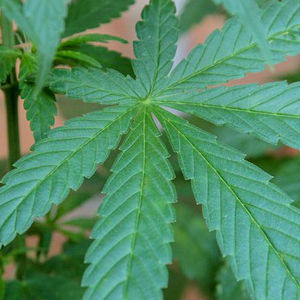 Policymakers across both aisles have had mixed viewpoints when it comes to cultivating cannabis, not in the literal sense, but as it relates to bills that would permit individuals to access medical cannabis. Several states, however, are expanding or considering expanding their medical cannabis programs, including Illinois, New York, and New Jersey. In addition, some federal institutions have taken steps to improve access: the Food and Drug Administration (FDA), the Drug Enforcement Administration (DEA), and Congress.
Policymakers across both aisles have had mixed viewpoints when it comes to cultivating cannabis, not in the literal sense, but as it relates to bills that would permit individuals to access medical cannabis. Several states, however, are expanding or considering expanding their medical cannabis programs, including Illinois, New York, and New Jersey. In addition, some federal institutions have taken steps to improve access: the Food and Drug Administration (FDA), the Drug Enforcement Administration (DEA), and Congress.
Medical cannabis received endorsement from Illinois Governor Bruce Rauner late this summer, when he signed a bill that would allow the therapy as an alternative prescription to opioids. Through the Alternative to Opioids Act (now Public Act 100-1114), doctors can authorize medical cannabis for any patient that currently holds or could hold, based on diagnosis, a prescription for opioids; applicants will no longer have to be fingerprinted and undergo criminal background checks. The state joins New York and Pennsylvania, which also turned to medical cannabis as a substitute to prescribing solely pain medications.
“It is wonderful to see a healthy, safe alternative for opiates now being allowed,” says Ellen Lenox Smith, co-director of U.S. Pain’s Medical Cannabis program and a board member for the organization. “Many will now have new help to turn to to improve the quality of their lives.”
Over on the east coast, there have been major developments in New York and New Jersey. In New York, state lawmakers have proposed a bill that would require public health insurance programs to cover medical cannabis. According to Smith, this is huge news and would the first law of its kind.
“Cost is the primary barrier to patient access in New York’s medical marijuana program,” reads a memo attached to the legislation. “Medicaid, other public health plans, and commercial health insurance plans do not cover medical marijuana, forcing patients to pay out of pocket. Some patients begin treatment only to stop due to inability to pay, while others turn to the black market.”
Nearby in New Jersey, the Department of Health is working to expand the availability of cannabis after an influx of thousands of patients apply for access in response to opening up the program to more conditions. Patients with musculoskeletal disorders, anxiety, migraine, Tourette’s syndrome, and chronic visceral pain now qualify for access. In response, the state released a Request for Applications for up to six new licensees to operate vertically integrated medical cannabis dispensary operations. The winners of the six licenses will be announced on Nov. 1.
“We only hope that even more states will open their hearts to citizens in their state,” says Smith. “Rhode Island just last week approved the use of cannabis for treatment of autism. It is exciting to see the qualifying conditions expanding from state to state.”
On the federal level, in June, the FDA approved a CBD-based oral solution to reduce seizures with two rare forms of epilepsy in young children. This is important, as it is the first time federal health regulators have approved a drug found in cannabis. In addition, the DEA recently announced that it will no longer consider products to be controlled substances if they have less than 0.03 percent THC.
Congress has also taken steps to prove the validity of cannabis for individuals with chronic conditions, though most are carry-over bills from 2017 and have yet to advance forward.
One bill, which U.S. Pain favors, has gone farther in the legislative process than the rest: the Medical Cannabis Research Act (H.R. 5634). Approved by the House Judiciary Committee by voice vote in mid-September, the bill would increase the number of manufacturers registered under the Controlled Substances Act to manufacture cannabis for legitimate research purposes. Health care providers within the Department of Veteran Affairs would also be allowed to provide recommendations to veterans regarding participating in federally-approved cannabis clinical trials. The at has yet to be scheduled for a full House floor vote.
A second federal bill, championed by Senate Majority Leader Mitch McConnell, would reclassify hemp as an agricultural commodity and remove it from the list of controlled substances. So far, the bill has been referred to committee, but has not moved forward.
For more information on U.S. Pain’s position on medical cannabis, click here.
